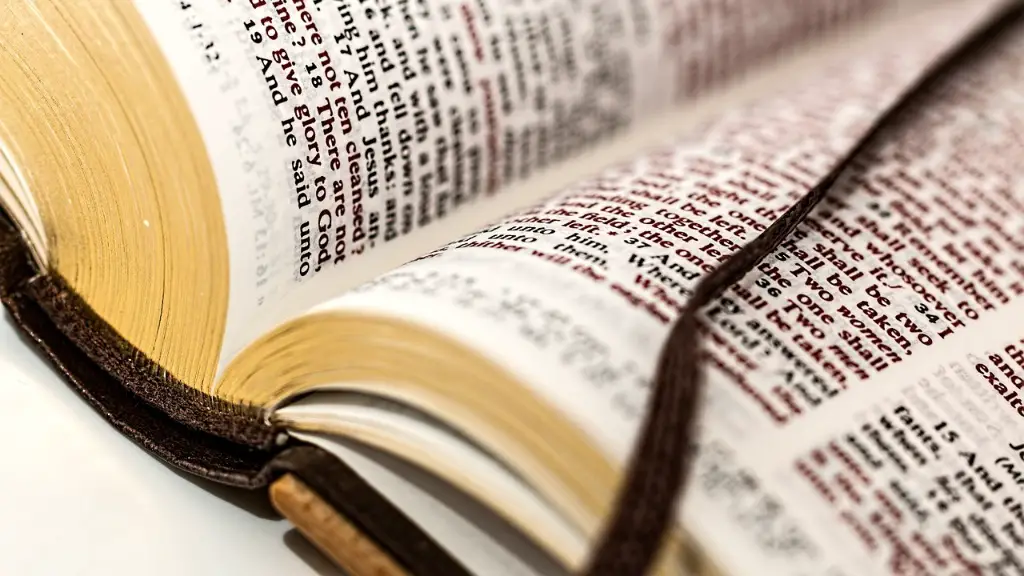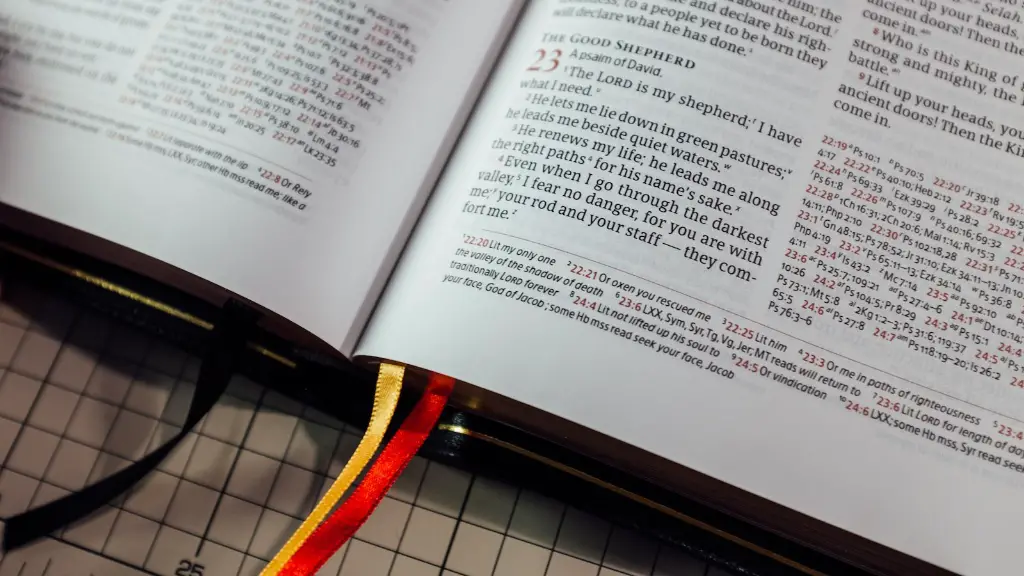What happened on Easter Sunday in the Bible is a question that millions of people around the world have asked throughout the centuries. At the core of Christianity lie two core events: the death of Jesus upon the Cross and his resurrection from the dead on Easter Sunday. The resurrection is a vibrant part of Easter proceedings and its importance should not be underrated. Biblical accounts are abundant on the death and resurrection of Jesus and contain an interesting narrative.
The Bible introduces a series of people and events believed to have been fundamental in leading to the rise of Jesus from the dead. According to Luke 23:50-56, Joseph of Arimathea asked Pilate for permission to bury the body of Jesus and he was later joined by Nicodemus to wrap it in a linen shroud. Shortly after that, Jesus was laid in a tomb which was closed and sealed by a stone. Meanwhile, Matthew 27:62 – 28:2 tells us that the chief priests and the Pharisees took steps to make sure Jesus’ body couldn’t be stolen by making sure they had the tomb watched. As Easter Sunday dawned, Luke 24:1-6 recounts that Jesus’ body was gone from the tomb and his disciples were informed of his resurrection.
“The resurrection of Jesus Christ is foundational to Christian faith,” said Dr. Peter Koenig, Professor of Theology at the University of Manchester. “When Jesus was brought back from the dead and seen by all the witnesses, it was indisputable proof that death was not powerful enough to stop God’s power and love, convincing His followers that He was indeed the Son of God.”
The nature of the early morning event is discussed in the Bible. Luke 24:1-12 outlines how the tomb was visited by some men dressed in white clothes and informed the women who had come to anoint Jesus’ body that he was no longer in the tomb and had been raised. Following this they experienced an encounter with the risen Lord who appeared to them. The disciples also experienced multiple appearances on the road, in Galilee and Jerusalem in the days that immediately followed. These appearances are documented in 1 Corinthians 15:3-7.
However, there is more to celebrate than just the resurrection of Jesus. Easter and spring go hand-in-hand and the new season is traditionally associated with optimism, hope, and joy. The death and resurrection of Jesus marked the birth of a different type of faith, one that focuses the eyes of its believers far beyond the narrow confines of their immediate circumstances and into a world that is inextricably linked to the divine. The Easter season is both a reminder and celebration of the triumph of Jesus’ love and mercy over death and suffering. For Christians all over the world, Easter symbolizes the redemption of humankind and the renewal of life.
The Role of the Disciples
The Bible makes it clear that, apart from women and men, the presence of the disciples was vitally important to the spread of the news of Jesus’ resurrection. Acts 1:22 notes that the disciples had been chosen by Jesus himself to act as witnesses by presenting themselves with power to people of all nations and languages. This task proved daunting, as it required a transformation in the spiritual life of the disciples and meant going out and proclaiming the words of Jesus. The acceleration of the universal message of salvation is at the core of the disciples’ mission, particularly during the Easter season.
Furthermore, their accounts of the resurrection were accepted and validated by other eyewitnesses who made the astounding journey to follow Jesus in faith, with the power of the Holy Spirit. The bold testimony of the disciples presented Jesus to the world with the confidence and conviction gained through living the faith. This fortified the faith journey of each believer as it revealed the wonderful plan of redemption through Jesus’ death and resurrection.
The participation of the disciples in the proclamation of the resurrection was greatly beneficial to early Christians as it helped to affirm and inspire their faith, even though they were scattered and persecuted. This upheld the ongoing tradition of those who experienced the resurrection and the ultimate string of new life that it symbolised. Today, the legacy of this faith still rings true to millions of Christians throughout the world.
The Significance of Easter
The deepest meaning of Easter Sunday lies in the purpose of Jesus’ death and resurrection—to reconcile mankind to God. According to Romans 5:8-10, it was through Jesus’ sacrifice that God showed His great love by making us right with Him, even when we were His enemies. In Galatians 2:20, Paul wrote, “I have been crucified with Christ. It is no longer I who live, but Christ who lives in me. And the life I now live in the flesh I live by faith in the Son of God, who loved me and gave himself for me.”
In the same vein, 2 Corinthians 5:17-21 outlines that those who receive Jesus become a new creation, accepting a new way of living and thinking. The importance of Easter Sunday lies in the availability of salvation and grace, since it provided “anytime access” to the eternal love of God. Even today, after thousands of years, Jesus’ resurrection provides opportunities for mankind to experience joy, peace, and life with its fullest rewards. It stands as a reminder of hope for all who accept Jesus as their Lord and Saviour and seek to follow His teachings.
The Pagan Influence
In addition to the religious significance of Easter Sunday, there are also some strong pagan influences that play into how we celebrate this day. The names “Easter” and “Eostre” (the earliest spelling) derive from the name of a female deity who was widely worshiped by Pagans in Germany during the pre-Christian era. Easter has always been associated with the spring festival, a celebration of the renewal of nature and fertility of the land, which is echoed in the symbolism of the Easter Bunny.
In the Catholic Church, Easter comes with a 40-day fasting period that begins on Ash Wednesday, which is often linked with the Pagan spring festivals in which people abstained from certain foods. Additionally, the symbols of the Easter egg and basket are also reminiscent of ancient fertility rites, although they have long since been reinterpreted through a Christian lens. This illustrates how Easter is an example of cultural syncretism – the mixing of two different religious beliefs.
These details emphasize how Easter Sunday is significant both in Christian faith and in the world at large, having withstood centuries of both religious and secular interpretations. While various interpretations of the day exist, the Bible’s account of Jesus’ resurrection remains paramount in converting people to the Christian faith and in providing encouragement and hope to believers.
Exchange of Ideas
Due to the centrality of Jesus’ resurrection, Easter Sunday plays a vital role in helping Christians understand the faith and teaching of Jesus in relation to other beliefs. Christianity has thus long provided a unique opportunity for lively and respectful exchange between different religious and philosophical systems, fostering dialogue and giving all participants a chance to take part in meaningful experiments of faith.
The premise of religious exchange is founded upon the idea that people of all faiths can learn from each other’s different experiences. This is especially the case during Easter, as it provides an opportune time to celebrate the commonalities between different belief systems while at the same time recognizing the beauty and diversity of each.
One of the primary ways of furthering such exchange is to discuss the stories and teachings of Jesus in comparison to other traditions. Through such conversations, people can explore different ways of understanding and relating to one another, even if their beliefs may not fully align. Cognitively, exploring different worldviews can help people to grow spiritually and learn from those of different backgrounds, ultimately creating a more inclusive, diverse and understanding faith community.
The Power of Testimony
Testimony is a powerful tool for spreading faith. During Easter, believers from all over the world gather to celebrate the resurrection and share the stories that they consider to be the greatest news ever told. This activity helps to energize the faith communities, pointing to salvation through the love and grace of Jesus.
Furthermore, testimonies of faith are especially powerful when delivered in person. Whether it is a speech, a sermon, or a personal sharing, such orations inspire people to take upon their faith with a fresh zeal and view it in a new light. Although the power of such testimony may differ, it serves to remind people of the house of faith and of their common humanity.
Ultimately, the resurrection is a reminder of the crucifixion, and the combination of the two serves as an incredible testimony to God’s power and mercy. It is through these accounts that people can gain a better understanding of the relationship between faith and sacrifice. Jesus’ passion, death, and resurrection were acts of love that demonstrate how, even in the midst of tragedy, God is faithful and trustworthy, and will never abandon us.
Faith in Action
The power of Easter is embedded within the knowledge that all believers’ lives and efforts will eventually count. Hope, enthusiasm and joy not only bring a renewed focus to faith, but also provide a strong impetus to action by providing an opportunity to challenge others and further witness the resurrection to people of all walks of life.
One way to witness the resurrection is by actively living out Jesus’ teachings and embodying the qualities we find in the gospels. This is especially vital during Easter, as it serves as an opportunity to demonstrate what it means to be a faithful Christian and encourages believers to further their personal journey of faith. For example, through practices such as praying for and/or blessing others, we can start to become the hands and feet of Jesus.
At the same time, the celebration of Easter is the perfect time to foster a deeper bond between the church and the greater community. For instance, participating in volunteer activities or simply meeting people’s basic needs are acts of service that bring hope while also offering a chance to bear a living witness of the power of the resurrection.
Conclusion
Easter Sunday is an important day that is full of symbolism, meaning, and significance for believers all over the world. It marks the day when Jesus rose from the dead, redeeming sinners and providing a way for people to be reconciled to God. The stories of the resurrection and the testimonies of the disciples provide proof of the power of faith and the importance of living a life of commitment to the Lord. Furthermore, Easter Sunday is a celebration of the renewal of life and of the transformation of mankind, as well as a chance for people to share in the joy of being a part of the Christian faith.





